More go abroad for healthcare
Updated: 2014-11-22 09:45
By Liu Zhihua(China Daily)
|
||||||||
 |
|
[Photo/China Daily] |
Programs in China
PHI is a leading integrated healthcare system in the United States founded by several top hospitals, including Massachusetts General Hospital, and Brigham and Women's Hospital.
During the one-week visit in Beijing, PHI announced a new cancer treatment program specially designed for Chinese patients, considering the rising incidence of cancer in China. According to the National Central Cancer Registry, 3.09 million Chinese developed cancer and 1.96 million died from it in 2010.
The program, Cancer Evaluation Service, is an outpatient service package for patients suffering from most prevalent cancers in China, such as lung, breast and gastric cancers.
Under the program, Chinese cancer patients will get comprehensive diagnoses and treatment plans based on individualized examinations and consultations, which will be conducted by a team of leading oncologists and medical experts in related fields.
Prices for the outpatient diagnosis and treatment plan are fixed, depending on the type of cancer, and the cost for further treatment varies from person to person.
Taking lung-cancer treatment for example: The Cancer Evaluation Service is $15,000, and the follow-up could be as high as $250,000, according to Edwin McCarthy, vice-president of PHI.
"PHI established its Shanghai office to tap the Chinese market as early as in 2002, but the timing was not good until in recent years, when Chinese people going abroad for medical service become part of a global trend ," McCarthy says.
Growing demandAlthough there are no reliable official figures, about 60,000 Chinese have gone abroad for healthcare services each year in recent years, according to Shanghai Medical Tourism Products and Promotion Platform, a government-supported agency that helps clients seeking medical services abroad.
A Beijing resident surnamed Luo speaks highly of the cancer treatment her father received in the US.
The father, 84, was diagnosed with prostate cancer in 2012. In the next two years, the family spent more than 1 million yuan on his treatment in domestic hospitals, but his health kept declining.
In late 2013, when cancerous cells were again found in the patient's bone marrow, doctors told Luo they had done everything they could, and suggested the patient go abroad for treatment, saying in the US there would be new drugs that are not available yet in China.
With help of an agency early this year, the family sent the elderly man to MD Anderson Cancer Center in Houston, Texas, one of the best cancer research and treatment institutes in the world.
There, a team of doctors with various medical backgrounds, including oncologists, endocrinologists and chemotherapists, worked together to treat him.
Unlike in China, Luo's father didn't have to be hospitalized. He stayed with his son in a rented apartment near the hospital and went to the doctors only when required, Luo adds.
The patient was given new drugs that were not available in China and received blood transfusions regularly to replace blood lost during chemotherapy.
All the doctors and nurses were polite and considerate, and slowly the cancer came under control, Luo says.
Now the once-skinny old man has gained weight, walks 3 kilometers every day for exercise and feels happy.
"We had to force him onto the plane to the US, because the cancer treatment in China was torturous and he refused to get any more of it," Luo says.
"Now he has regained hope for life, and the cancer is more like a chronic disease under control."
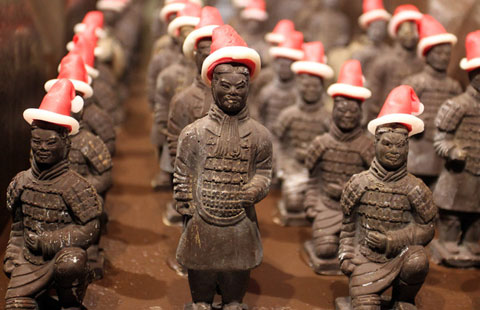
 Chocolate warriors with Christmassy characteristics
Chocolate warriors with Christmassy characteristics
 Trending: Panda beating video triggers outrage
Trending: Panda beating video triggers outrage
 Culture Insider: 7 things you may not know about Minor Snow
Culture Insider: 7 things you may not know about Minor Snow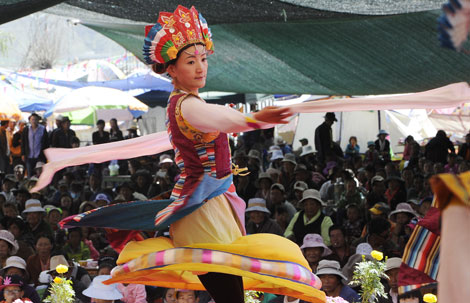
 Practitioners adapt old operas to fit modern lifestyles, tastes
Practitioners adapt old operas to fit modern lifestyles, tastes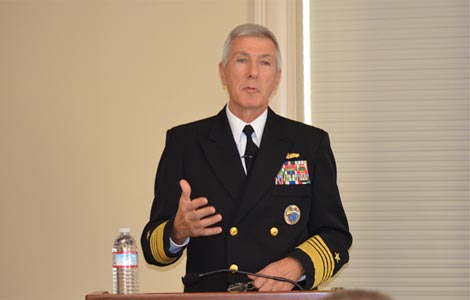
 The future of the Asian Pacific
The future of the Asian Pacific
 Early start to family life
Early start to family life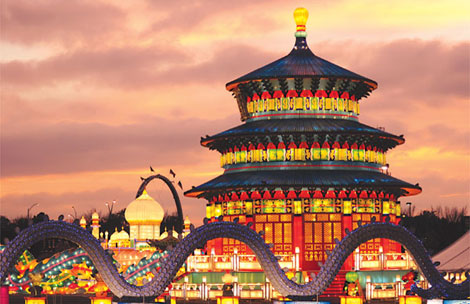
 Lantern festival coming to California
Lantern festival coming to California
 Across America over the week (Nov 14- Nov 20)
Across America over the week (Nov 14- Nov 20)
Most Viewed
Editor's Picks

|

|

|
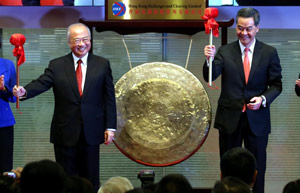
|

|

|
Today's Top News
Chinese newspaper, magazines punished
Strong earthquake hits SW China
China's interest rates cut to bolster growth
Kekexili applies for world heritage
Banner year for US, NYC real estate investment
Obama takes executive action on immigration
China's central bank cuts interest rates
Lantern festival coming to California
US Weekly

|

|







